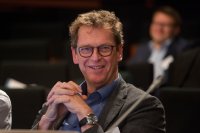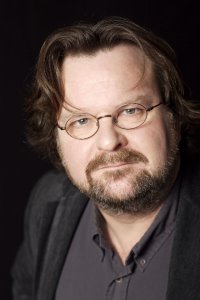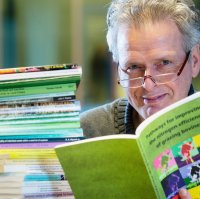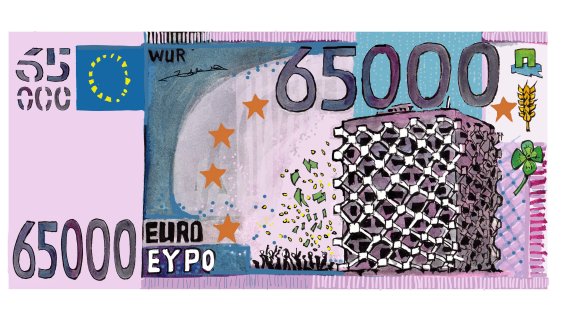text Roelof Kleis and Tessa Louwerens illustration Henk van Ruitenbeek

René Wijffels
Bioprocess Engineering chair holder
‘The teaching workload has increased enormously. It is also important that tenure track staff still have time for proper research. We’re trying to manage the increase in the teaching workload by appointing lecturers. Of course the additional budget for financing that is very welcome. We’ve appointed 1.6 lecturing FTEs in the past 18 months. They devote all their time to developing, preparing and delivering education. The idea is that this will prevent any further increase in the teaching workload for tenure track staff. The money isn’t enough to cover all of those extra costs. But we’re also getting more income for education because the number of students is increasing.’
Ellen Kampman
Nutrition and Disease chair holder
In Human Nutrition, five chair groups have joined forces in a cluster with a shared administration. We share the teaching tasks proportionately, which lets us pool resources. You can’t do much with this money in terms of extra research and we will mainly be spending it on teaching. We are considering additional temporary FTEs to refresh and improve the existing courses. That’s currently being done for the Bachelor courses, and the Masters’ will follow. We will still have to pull out all the stops as a group in these challenging times for science and the university.’
Vincenzo Fogliano
Food Quality and Design chair holder
‘It is surely laudable that the Executive Board has decided to invest further in education. All the chair holders in the Food Technology and Food Quality Management programmes are hiring more staff and investing in e-learning tools. In this way I feel we are managing to accommodate the growth in student number without compromising the quality of the courses and especially of the experimental graduation thesis. It is worth mentioning that AFSG added 250,000 euros to the money from the board. These funds were allocated to five different projects to support the efforts of our teachers. I think the money is sufficient at the moment. What is more problematic for us is the lack of physical space, like student desks, laboratories and meeting rooms. There is a plan for the next three years but we really look forward to having the new teaching building, which will solve this structural problem.’

Frits Mohren
Forest Ecology and Forest Management chair holder
‘This is the support we have long been waiting for. Teaching is really under pressure due to the growing student numbers. Our numbers have been growing annually by 7 to 8 percent for years. We now have around 90 first-years, whereas the teaching system is set up for 50 to 60 students. You can cope with that for a couple of years by shifting up a gear. Lecturers do this because they are incredibly motivated, but they are being overtaxed. That’s why we will use the extra money to appoint someone who can help change the teaching setup in a way that permanently reduces the burden for our lecturers, for example by setting up courses differently or examining students more efficiently. I’d really like an extra lecturer but this will relieve things a bit too. So I’m really pleased with this.’
This is the support we have been waiting for

Geert Wiegertjes
Aquaculture and Fisheries chair holder
‘Aquaculture and Fisheries will be using the extra cash to expand both the permanent academic staff and the support staff, alleviating the situation directly for the current staff as a result. This will involve capacity for both teaching and research. Of course the money is not enough to cover all the costs but it is enough to take the gamble and make the decision to take on more permanent staff. It’s certainly not merely a drop in the ocean and because it’s a long-term contribution, that drop won’t just evaporate either.’

Paul Struik
Crop Physiology chair holder
‘Together with Professor Niels Anten’s Crop and Weed Ecology group, we form the Centre for Crop Systems Analysis. We pooled our money and used it to appoint a tenure track scientist. We are doing this in anticipation of the retirement of a few people in the group over the next few years. I myself will be retiring at the end of 2021, for example. At present, the new appointment means additional teaching capacity, although of course a tenure track scientist also does research. We have several subjects where there has been a big increase in the number of students. Practicals for 200 students, for example, where it really is all hands on deck. We are also feeling the pressure in the supervision of thesis students. We have introduced a thesis ring to cope. The workload is quite high. But I’m not going to dramatize the situation. I also remember the days when I was lecturing to two students and one would call the evening before to cancel.’

